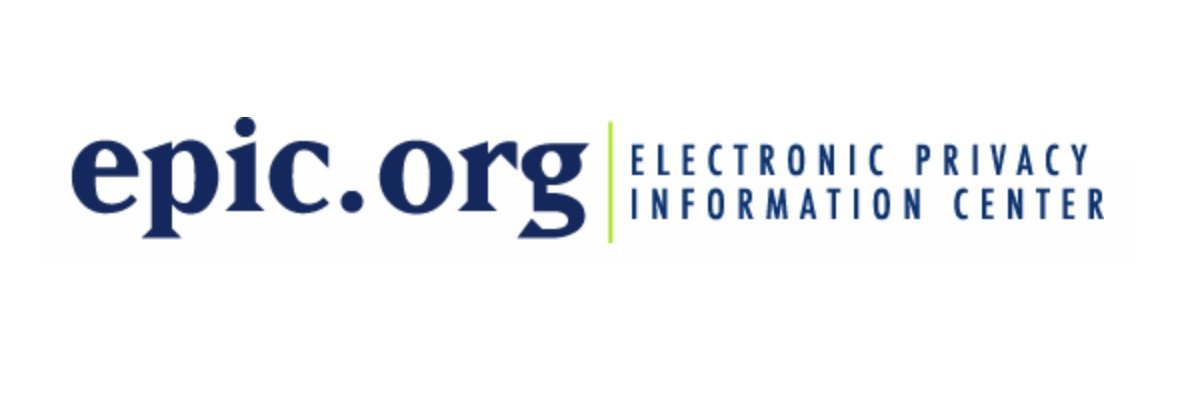In this week’s Requester’s Voice MuckRock speaks with Julia Horwitz, open government counsel at the Electronic Privacy Information Center (EPIC) in Washington, D.C. Julia recently led EPIC’s successful FOIA suit against the Department of Homeland Security, the ruling for which can be found at EPIC’s website. Horwitz, who worked at the Federal Trade Commission, the U.S. Department of Energy and the World Bank before joining EPIC, talk about the DHS win, her personal FOIA strategies and where FOIA falls short.
How does FOIA fit into your role at EPIC?
I’m the coordinator of EPIC’s open government project. So that’s mostly FOIA. I oversee the flow of FOIA requests from EPIC to various government agencies and then I’m involved with all the FOIA litigation that almost inevitably results.
What’s your favorite or most memorable request that you’ve made?
I don’t know if you read about EPIC’s “Internet Kill Switch” case.
Of course.
So that was a pretty great request where we asked for one specific thing and we knew it existed and it had a huge impact. But DHS told us that they had no record of it.
That seemed like FOIA at its essence. We got it boiled down to one document that we were looking for. They said NO and we say YES.
That was my favorite.
Surely it couldn’t have been that simple.
We’d sort of heard about the kill switch before. But our interest came into focus right after the BART [Bay Area Rapid Transit] protests in 2011 where all cell service was shut down. The cell service was supposed to be the means by which protesters were coordinating. We said, “That doesn’t sound right that all cell service can magically shut down at a protest site.”
We did some digging around to see if we could find any records. We found this old 2006-07 report from the President’s National Security Telecommunications Advisory Committee that made reference to this thing called SOP 303. It had a little bit of description in it but really the kind that you give to somebody who already knows what it is.
All we got from that was that there’s a series of questions that DHS can ask to local law enforcement or local DHS branches, maybe, and based on the answers to the series of questions something happens and then all cell service is shut down.
So that whet our appetite for more information, and we asked for the text of SOP 303. DHS replied and said they didn’t have any records related to our request.
So we appealed and said, “Surely you have records related to our request. We saw it in a document that you were the co-author of.” We got no response, so we went to court.
After we started litigating, DHS responded to our administrative appeal and presented us a hugely redacted version of Standard Operating Procedure 303. So we continued to litigate because we hadn’t gotten the information we were looking for because it had been so redacted.
So I guess it was more complicated.
Where does FOIA shine as a journalistic tool and where does it fall short?
I can tell you where I think it falls short pretty easily. FOIA tends to get in the weeds very quickly. Technical things will happen and legal terms will start showing up pretty early on. It turns into an opaque process for people who aren’t regular requesters or litigators or journalists, who are intrepid and don’t get intimidated by legalese and administrative interactions.
So I can imagine that people who aren’t doing this in some kind of professional capacity might get discouraged from continuing to pursue FOIA. That feels like a weakness.
But I think the strength is this presumption of openness. That if all else fails it’s easy to remember that the fallback position of FOIA is that the government should disclose information.
So if you can think of something that you think the government should give you, the presumption is already working in your favor.
Where did you learn about the FOIA process? What was your initial exposure?
It was here at EPIC. I was hired for a one year fellowship and then I started working with the FOIA counsel and the open government counsel almost right away and then when she left I took over. So it was something that I was doing as part of my first job out of law school which then turned into my permanent job.
How often do you file requests?
Under my supervision or under my program area we probably send out a request per week. Our model is a little different than MuckRock’s. We sort of start from scratch on every FOIA and treat it like it’s a legal brief right from the start. We try to set out the specific facts and the specific legal arguments that we anticipate with every request that we send out rather than sending out a lot of requests and then dealing with the obstacles later on down the line. It’s not better, necessarily, just a different approach.
Sometimes I think we should be doing a whole lot of requests to a whole bunch of agencies but we get some of our biggest successes by thinking of something very narrow and very specific like SOP 303 for example which was a very carefully research and crafted request that turned into a carefully researched and crafted piece of litigation.
I think if we had gone scattershot with that one, we wouldn’t be in the position that we are now.
Do you have any advice for first-time filers or veterans alike? Whatever you’ve got up your sleeve that you think can help pry documents out of the hands of a records custodian.
Out of the icy grip of the government’s hands? Be familiar with the exemptions and also the exclusions which aren’t talked about as much but that apply to the national security facing agencies.
Try to anticipate the exemptions, because you will be able to choose words or narrow or expand your request in a way that evades possible exemptions.
An exclusion, on the other hand, is a mechanism that certain agencies can use where they don’t confirm or deny that they have the records. Just a blanket statement: “You’re not getting any records and that doesn’t mean anything.”
It’s a Glomar response, but it’s only with specific agencies and it’s written into the statute.
The terminology is that these specific agencies are allowed to treat the records as not being subject to the requirements of the FOIA. So you end up getting these form letters saying that under a certain provision of the FOIA exclusions are permitted and we’re not going to give you any documents, and this may or may not be an exclusion.
So it’s like Glomar but rooted in the statute instead of rooted in case law.
And that statutes really give those specific agencies carte blanche right? You’re ultimately powerless if you get one of those form letters.
I don’t think I’ve ever encountered an exclusion battle before. But I think that if you could show some knowledge of the record existing already or maybe part of it is in the public record then you might be able to counteract. But if it’s something that you don’t know exists or you don’t really know much about it and you get that kind of response, there’s really no where to go.
In your opinion what will bring about meaningful policy level change to the current FOIA standards?
When government agencies are discussing FOIA and FOIA regulations it will be important to include civil society groups in their discussions. It will be important to bring in regular requesters — by regular I mean those who request regularly, they don’t have to be normal people — and engage in dialog.
I think that some of the most valuable communication about the FOIA process happens when somebody inside the government and somebody who’s a regular requester try to talk to each other about the pitfalls of FOIA. That really ends up highlighting the areas where both requesters and FOIA officers are encountering the same problem but from different angles.
That seems to me to be an area where both parties can agree to a change.
I was on the phone with someone at the DEA the other day and he was telling me that I needed to send my request to a specific office and I didn’t know which office and somehow neither of us gave up on the phone call. But it was really frustrating because he didn’t know anything about the thing I was asking for and I didn’t know where to send the request because DEA had all the information by nature of the thing I was asking for.
So here’s an area where if meaningful policy level change was made there would be easy FOIA road maps so that the DEA employee and I could figure out where my request needed to go.
How does a layperson go about going to court over a FOIA? When do you decide to take legal action? How do you make that decision?
Some of that is written into the statute because there are time limits on how long an agency can take to respond. So if an agency doesn’t give a legally meaningful response within 20 days then we can go to court.
Almost all of the requests we send at EPIC end up over the time limit. So theoretically we could just file lawsuits for all of them, but lawsuits are expensive and require a lot of man and woman power. So we have to be a little more judicious when picking which things are relevant or cohere really well with other open government group’s projects.
For the layperson — I mean people don’t just have lawyers sitting around who are willing to file FOIA requests. I guess that’s another one of the real pitfalls of FOIA. But there are lots of groups and organizations that are focused on FOIA and helping people navigate the legal world of unanswered FOIA requests.
So I think the thing to do is to go to those groups, show them your request, and say HELP.
But the FOIA also has this fee-shifting provision so theoretically the government has to reimburse you for the time you spend working on getting the documents. The theory behind that is that it could empower anybody to go to court because they’ll get their money back but money later on isn’t always enough incentive for people to go to court now.
What about the dangers of setting legal precedent in the wrong direction? Say, you lose and all of a sudden there’s case law for the government to lean on in future cases …
That’s something we worry about a lot — maybe worry is the wrong word — but we certainly keep it in mind all the time. Most of the time before we do something like file an appeal to the D.C. circuit court we’ll meet with other civil society groups and open government groups and ask what they think. Is it a good idea? Is the risk worth the potential reward? We’ll try to calculate what the advantage will be.
But, generally, going to district court puts less at risk because that won’t set binding precedent for other district courts. It will be influential precedent, but not binding. Whereas if you’re thinking about going to the circuit courts you really need to make sure you’ve consulted with all of the people who might be affected.
Image via EPIC.org




